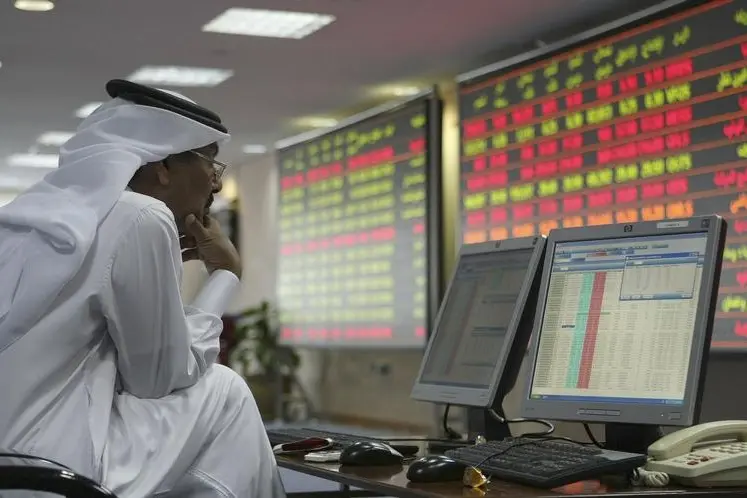PHOTO
Monday, Nov 07, 2016
Abu Dhabi: The recent decline in the US bond market coupled with negative yields in Europe could be good news for the GCC’s bond market, which could see funds flowing in as investors shift their gaze away from developed markets and into the region.
Expectations for the US Federal Reserve to hike interest rates in December have squeezed the bond market in October, with bonds around the world falling the most in almost six years, according to Bloomberg.
However, the GCC’s bond market fared relatively well during the month, and saw fairly robust activity, with $67 billion (Dh245.9 billion) worth of investor demand just for the Saudi sovereign bonds that were issued in mid-October.
“What you’ve seen is actually the GCC holding up quite well given the strength of oil prices and the demand for the Saudi issuance, which was four times over-subscribed. I think there’s going to be more and more issuance in the GCC coming up, so I would expect the markets to soften a little bit as we go forward,” said Saleem Khokhar, head of fund management at the National Bank of Abu Dhabi’s asset management group.
In developed markets, bonds are expected to soften further as the Fed raises interest rates. A Bloomberg survey of economists forecasts that US 10-year yields will fall to around 1.7 per cent by the end of 2016, and will rise to 2.1 per cent in 2017.
In the GCC, year-to-date returns on BB and BB- bonds average 7 per cent, Khokhar said, pointing that there wasn’t much of a default risk for GCC corporate or sovereign bonds.
“There’s a search of yield, and the GCC provides quite an attractive yield, so you do anticipate that the markets will remain stable. I think it will be difficult for them to see a lot of capital appreciation, but given the yields they offer, you do expect to see money being parked in that GCC/Mena [Middle East and North Africa] area,” Khokhar said.
He added, “The only thing I’d say is you had quite a strong market year-to-date, so would now be the best time to enter is the only thing I’d raise a question on. If you’re someone who’s willing to hold some maturities, three to five years, and you look at the yield you would get in the GCC, I’d say that’s quite an attractive proposition.”
Expectations of further interest rate hikes from the Fed in 2017 are also likely to put pressure on both sovereign and corporate entities in the GCC to speed up their plans to issue bonds in dollars.
Currently, the pipeline of new bond (and sukuk) issues in US dollars includes corporate bonds that will come from Etihad Airways, National Bank of Abu Dhabi, Bank of Sharjah, and Emirates National Oil Company, as well as sovereign bonds from both Kuwait and Dubai.
More corporate issuances
“Although there is no urgency to do so, Kuwait might go ahead with their sovereign issue. Once the yield curve is established at sovereign level, there is likely to be more issues from the corporate as well,” said Vijay Harpalani, fund manager at Al Mal Capital in Dubai.
“There has been more demand for investment-grade short maturity bonds as these have performed relatively well this year… Regional issues have so far seen solid oversubscription from a diverse investor base as yields continue to be negative in Japan and Europe. Strong reserves and relatively lower debt makes a good investment case for regional sovereign bonds,” he added.
And it wasn’t just the GCC that fund managers were relatively bullish on.
According to a fund manager survey by the Bank of America Merrill Lynch, the mood around the International Monetary Fund/World Bank annual meetings in early October in Washington was bullish on emerging markets (EM).
“Investors and policymakers thought risks from China, oil, and the US dollar had diminished, and EM fundamentals were slowly improving. Our investor polls at the conference showed that the consensus expects more capital and fund inflows, with a preference for local markets among asset classes and Latin America among regions,” the report said.
By Sarah Diaa Staff Reporter
Gulf News 2016. All rights reserved.





















